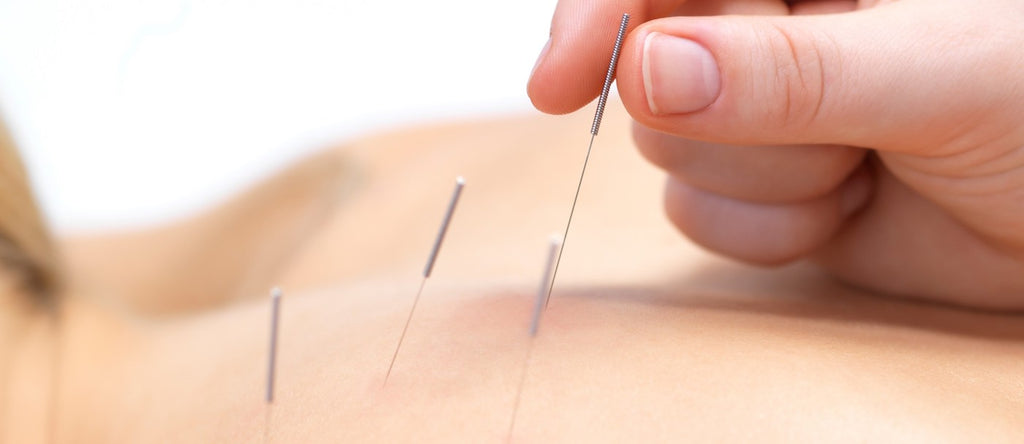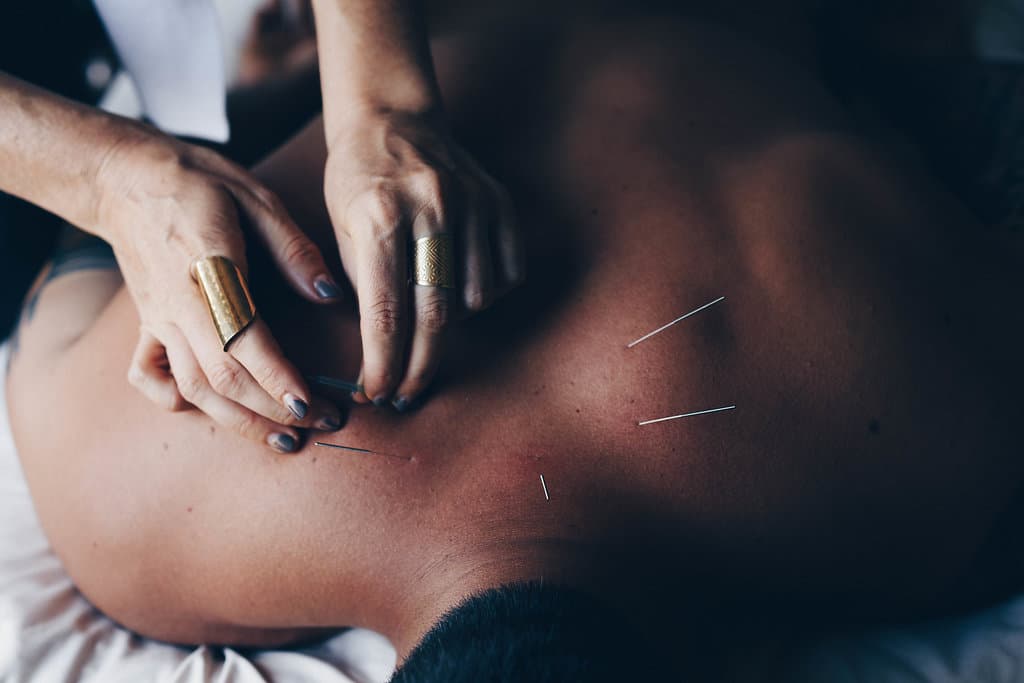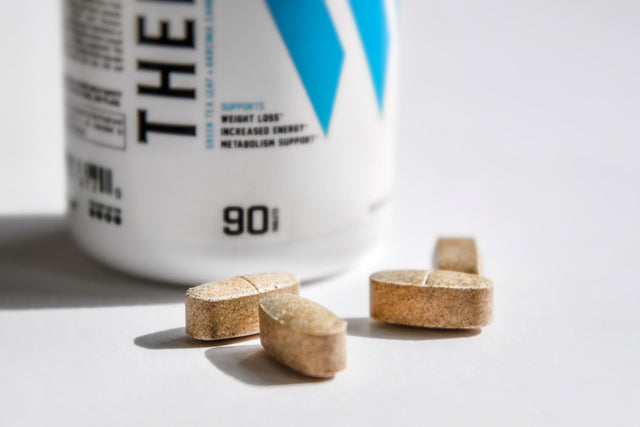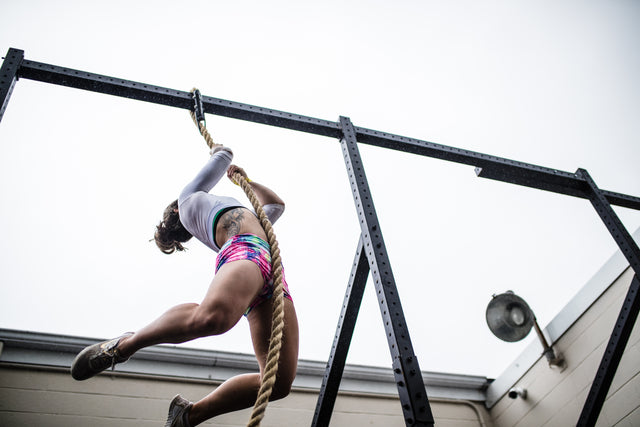By: Genevieve Gyulavary, DPT
A buzzword for recovery inside the gym recently has been the topic of dry needling. Those who have had it swear by it, and others who know almost nothing about it are intrigued. There are so many misconceptions floating around about what dry needling therapy truly is, and how exactly dry needling can promote recovery.
What Is Dry Needling?
The basic treatment of dry needling is characterized by the insertion of a microfilament into a muscle to release a trigger point. Local injection therapies often referred to as ‘wet needling’ use needles to deliver corticosteroids or other agents to localized sites. In contrast, the term “dry” comes from the fact that there is no solution that is injected into the skin and there is no bleeding that occurs from the insertion of the needle [R].
When an injury occurs from repetitive trauma or overuse, commonly seen in metabolic conditioning type activities, micro tears in the soft tissues can begin to occur. As tissues become damaged they go into a protective state and contract. This process is known as vasoconstriction, whereby blood vessels narrow and cut off the supply of oxygen and nutrients to the damaged tissue. The narrowing of the vessels prevents new oxygen-rich blood from reaching the site of injury, as well as inhibits waste products from leaving. Because new oxygen-rich blood cannot reach damaged tissues, the site becomes hypoxic (oxygen-poor), which promotes scar tissue. This series of events affects the tissue’s ability to function optimally decreasing tissue extensibility, promoting nerve root irritation, and creating disturbances in functional movement [R].

When a trained practitioner inserts a filament into an affected muscle, it should stimulate a twitch reflex. This reflex is both therapeutic and diagnostic. When a twitch reflex is activated clients describe this sensation as a deep ache or cramping. According to research, the advancement of a needle into a trigger point is the first step in breaking the pain cycle. When the needle is inserted it produces a controlled lesion, which is seen as an invader by the body and the inflammatory cascade is ignited. This produces a reaction not only locally, but also systemically in the body.
How Does Dry Needling Therapy Work?
Dry needling produces a systemic reaction meaning: when it comes to addressing musculoskeletal dysfunction it has mechanical, neurological, and chemical effects. Common examples vary widely and can include: hip and shoulder pain, chronic pain, and athletic performance. A healthy muscle will feel very little discomfort when the needle is inserted, whereas a trigger point or site of inflammation may cause a deep ache.
Much of the pain seen from a clinical standpoint is myofascial in nature, which means it originates from trigger points, muscle spasm, muscle tension, and muscle deficiency. Dry needles are used specifically to address myofascial pain. Needling can increase muscle fiber length mechanical effects), cause opioid-mediated pain suppression (neurological effects), and initiate the inflammatory cascade in order to promote healing (chemical effects). The application of dry needling is endless in conjunction with traditional rehab and strengthening [R].
Acupuncture vs. Dry Needling
Dry needling is a treatment used to address musculoskeletal issues based on pain patterns and muscular dysfunction. A comprehensive evaluation will drive this treatment. Clinicians who perform this manual therapy technique must have extensive knowledge of anatomy, physiology, and medical diagnosis. Dry needling relies on the foundational principals of western medicine and follows evidence-based practice.
Acupuncture is rooted in eastern medical diagnosis. Licensed acupuncturists are required to complete 1,500 hours of training to become a certified practitioner. Instead of addressing pain at muscular trigger points and following pain patterns related to anatomy, acupuncturists follow meridians or ‘pathways’ in the human body. For example: if I insert this needle into your foot it will relieve your back pain. There is no scientific evidence that meridians truly exist, partly due to the fact it is difficult to set up investigations using proper scientific controls, and also because of the invasive nature of acupuncture as a treatment.
Pros And Cons Of Dry Needling
The pros of dry needling far outweigh any of the risks associated with the treatment. Reported adverse effects include soreness, fainting (due to the sight of needles), fatigue, and bruising. Very rarely will a client experience bleeding due to the extremely small diameter of the needle, but in some very rare instances, it is possible. The actual procedure will take no more than 5-10 minutes, and therefore is quite fast. If you are pregnant, unable to understand the procedure, or very afraid of needles- you should avoid dry needling.
The preliminary research on dry needling supports improvements in pain control, reduced muscle tension, and normalizing dysfunctions at the motor end plates (the sites where nerve impulses are conducted to muscles). All of these variables speed up client’s return to more dynamic and active rehab, in conjunction with a larger treatment plan [R].
Does Dry Needling Help Recovery?
In early January of this year, a random control trial examined 26 participants experiencing non-specific neck pain with trigger points in their upper traps. Participants were randomly assigned to two groups: Dry needling (DN) with local twitch response and DN without. Evidence suggests that eliciting a local twitch response during needling is essential in the effectiveness of treatment. Participants received three sessions of DN treatment three days apart. Higher changes were observed in the local twitch response group in terms of reductions in subjective neck pain and improvements in cervical range of motion compared to the control group [R].
A systematic review was conducted on DN looking at the effects of needling on tendinopathy. Four studies were found on this topic and compared. The studies that were included suggest needling improves patient outcomes when looking at Achilles injuries, lateral epicondylitis (elbow injuries), and rotator cuff injuries for injuries at tendons (tendinopathies) where muscle connects to bone [R].
Looking at a more active population such as the CrossFit community this treatment can be used from a prehab standpoint. An athlete does not need to already be in pain to be a candidate for dry needling. If an athlete is feeling weaker than normal or experiencing decreased performance, they can be assessed for neurogenic inflammation through ‘neuro-trigger points’, akin to muscular trigger points, which can cause inhibition. There is also a proactive/preventative phase for athletes during times like the open, competition prep, or periods of higher volume training, where they would benefit from this treatment prior to the onset of pain. Instead of smashing tissues with lacrosse balls and PVC pipes dry needling can have a more penetrative effect on inflammation and improve performance overall [R].
Does Dry Needling Work? The Conclusion
While not everyone will respond exactly the same way to dry needling, this treatment can be incredibly effective when it comes to pain relief, reduced recovery times, and improvements in athletic performance. This means doing the things you love inside and outside of the gym for longer and recovering faster. By addressing trigger points in this way the research shows that you can improve physical function and performance.
Looking for ways to recover faster?
SWOLVERINE's BCAA is a synergistic combination of Branched Chain Amino Acids, Electrolytes, and L-Glutamine designed to help provide intra-workout hydration, fight fatigue, and optimize recovery. With a deliciously refreshing lemon-lime flavor, BCAAs are the perfect addition to your workout to hydrate, recover, and rebuild lean muscle mass
SWOLVERINE is an endurance athlete and active lifestyle brand. Made for the elite athlete, and the strong-willed our products were designed to fuel your athletic performance. We perform when you perform.
We believe that everyone can optimize not only their athletic performance but their human potential. The way we believe we can optimize performance is through transparency, clinically effective doses, and clinically proven ingredients with evidence-based outcomes. We provide the nutrients you need to power your active lifestyle.
About The Author

References:
- Gargano, Frank, et al. “Dry Needling: a Literature Review with Implications for Clinical Practice Guidelines. - IDN.” Integrative Dry Needling Institute, 22 Aug. 2014, com/dry-needling-a-literature-review-with-implications-for-clinical-practice-guidelines/.
- “Acupuncture, What to Expect, How It Works.” Medicamentos Antiinflamatorios No Esteroideos (AINE) | NorthShore, northshore.org/healthy-you/acupuncture-how-it-works/.
- Hakim, I K, et al. “The Effect of Dry Needling on the Active Trigger Point of Upper Trapezius Muscle: Eliciting Local Twitch Response on Long-Term Clinical Outcomes.” Current Neurology and Neuroscience Reports., U.S. National Library of Medicine, ncbi.nlm.nih.gov/pubmed/30636729.
- Krey, D, et al. “Tendon Needling for Treatment of Tendinopathy: A Systematic Review.” Current Neurology and Neuroscience Reports., U.S. National Library of Medicine, Feb. 2015, ncbi.nlm.nih.gov/pubmed/25613418.
- Gattie, E, et al. “The Effectiveness of Trigger Point Dry Needling for Musculoskeletal Conditions by Physical Therapists: A Systematic Review and Meta-Analysis.” Current Neurology and Neuroscience Reports., U.S. National Library of Medicine, Mar. 2017, www.ncbi.nlm.nih.gov/pubmed/28158962.














